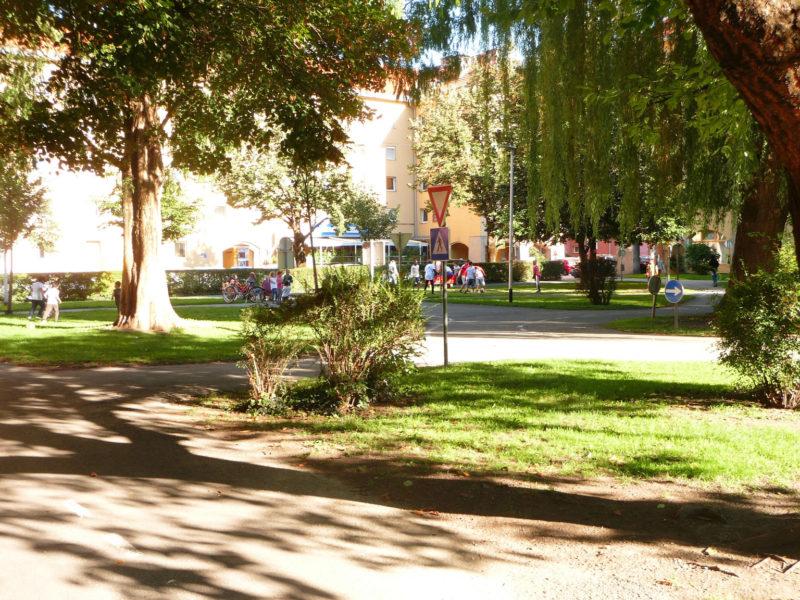
Lukas Emrich
Living in Common? Political and Social Ecologies of Cooperative Housing Practices in grown quarters of Munich and Vienna
Political and Social Ecologies of Cooperative Housing Practices in Munich and Vienna

Pixabay
Can we find the commons in a capitalocenic city? Can they take the urban beyond planetary urbanization? It is widely agreed that (urban) commons go far beyond the cooperative use of material resources. Yet, how can we grasp the practices that constantly (re-)produce the commons and understand their role in transforming the urban? In Germany and Austria, a relatively new phenomenon of self-governed housing projects has gained growing attention. These are frequently posited as the new bearers of hope for addressing many entangled problems of urbanization through non-market cooperation, such as the housing crisis, land consumption, even climate change. Are self-governed housing projects therefore an example of socio-ecological transformation through urban commoning? This leads to questions of the
ways commoners conceptualize and (re-)produce their spatial environment, of internal organization and (possible) processes of enclosure and exclusion. Moreover: what strategies exist to make the commons accessible on a wider scale? What effect does the dwelling in housing cooperatives have on space consumption or mobility practices? These questions need to be understood both as responses to capitalistic paradigms and regulative mechanisms of housing but also as still moderated by class, habitus, and power.
The growing attention on young housing cooperatives has largely been pivoting around newly built projects. Often these are stylized as beacon projects of sustainability in a rather incremental sense. Addressing the challenges of planetary urbanization, however, also includes the extensive stock of inherited infrastructure in grown neighborhoods. To this effect three to four different cases in historically grown quarters of both Munich and Vienna are studied, within an iterative approach of mixed methods. This includes empirical methods, such as narrative interviews, practice diaries and questionnaires, and methods of critical social geography. In addition to this empirical core, the examples will also be considered within their historical context. Archives from within the projects or the respective neighborhoods will thus play an important role, as will sources on the history of political ideology of housing and housing commons.
Lukas Emrich is a Ph.D. student at the Rachel Carson Center, LMU Munich. Contact: lukas.emrich@rcc.lmu.de

